10 March 2025
Team-based multiplayer shooters are some of the most adrenaline-pumping and rewarding games out there. Whether you're playing classics like Overwatch, Counter-Strike: Global Offensive, or newer titles like Valorant and Apex Legends, the key to success lies in teamwork. It’s not just about having the best aim or the highest kill count (although that certainly helps). It’s about strategy, communication, and being a team player.
But let’s face it, these games can be overwhelming—especially if you’re new to the genre or struggling to perform well in matches. Ever feel like you're the weakest link on your team? Don’t sweat it. With the right mindset, a little practice, and some golden tips, you’ll be carrying your team in no time.
Here’s a comprehensive guide to thriving in team-based multiplayer shooters, so you can move from "liability" to "MVP" quicker than you can say "GG EZ."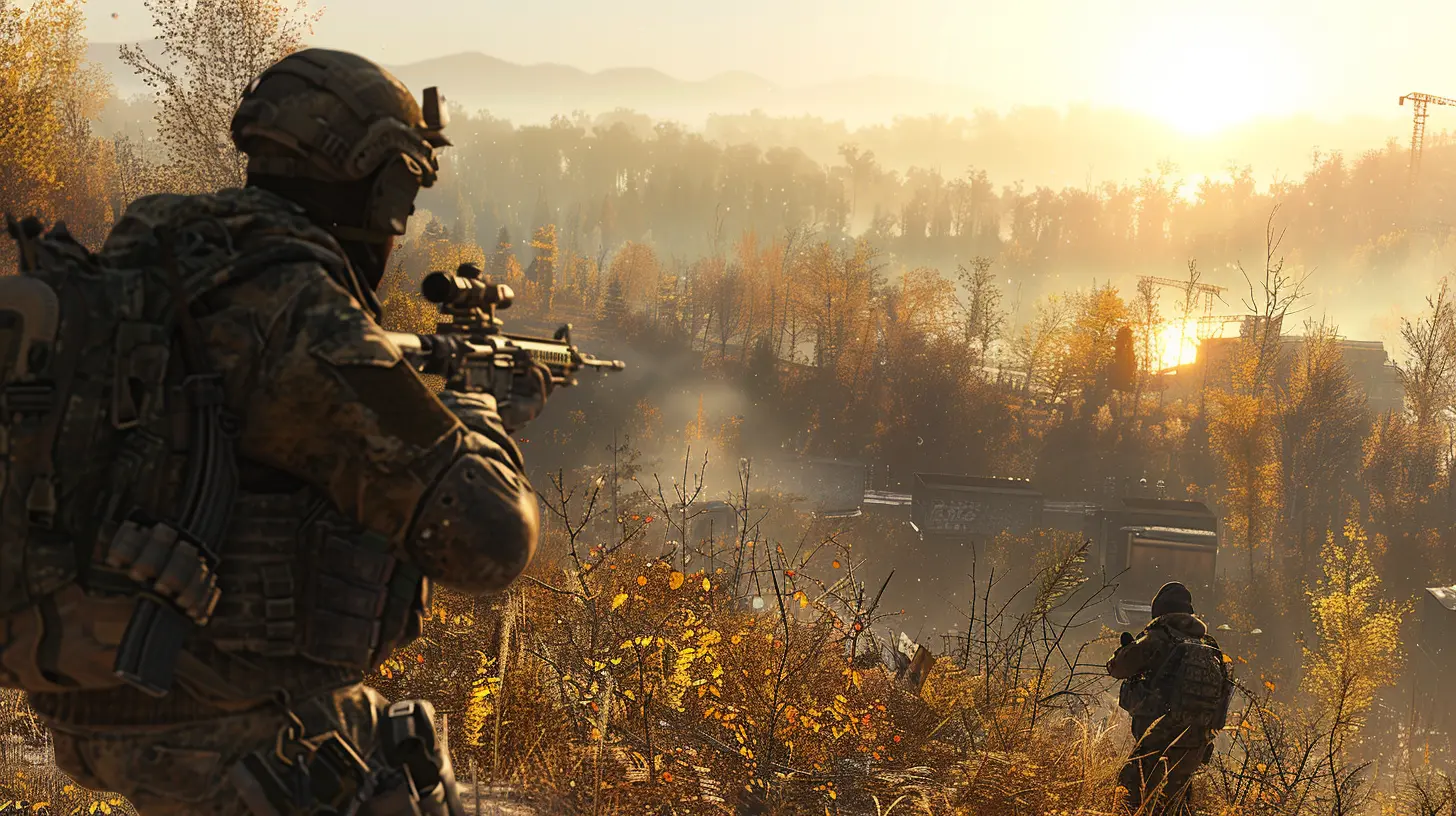
Understand the Role of Teamwork
You’ve heard it before: "There’s no 'I' in team." Cliché? Maybe. True? Absolutely. Team-based shooters revolve around synergy. A team of average players with great coordination will almost always outperform a group of solo superstars who don’t work together.Imagine you’re playing a game like Rainbow Six Siege. If everyone charges in guns blazing without a plan, you’re likely going to lose. On the other hand, if you communicate effectively, cover each other’s backs, and play your roles properly, even the toughest matches can swing in your favor.
Key Takeaways:
1. Play for the Team: Prioritize team success over personal stats. Nobody likes that one player who only cares about their K/D ratio.2. Be Flexible: Sometimes the team needs a healer or a tank. Filling these roles can make all the difference.
3. Communication is Key: Stay in touch with your teammates. Ping enemies, suggest strategies, and call out dangers when you see them.
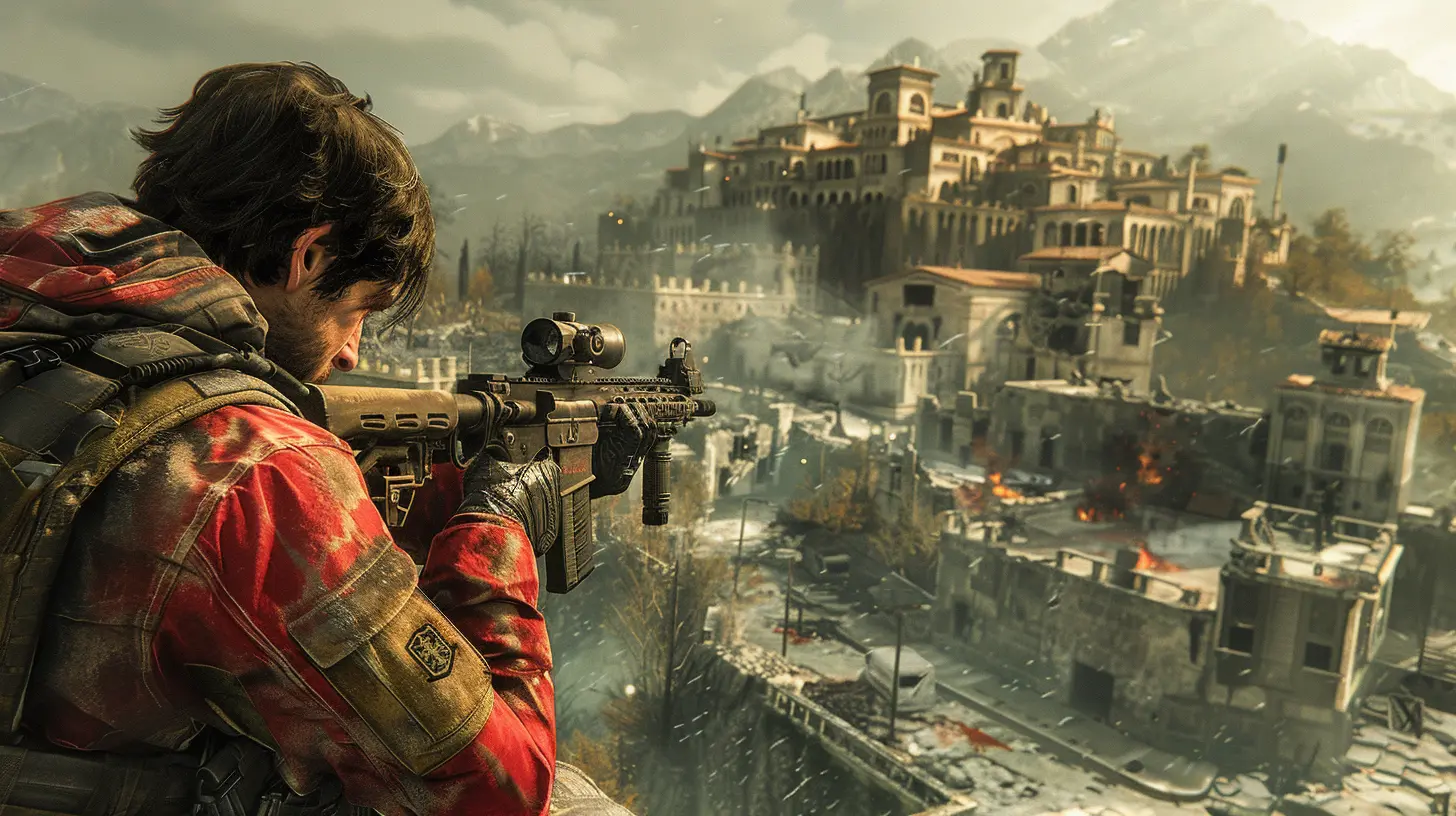
Mastering Communication: Talk (But Don’t Be Annoying)
Speaking of communication, let’s dig into this. Good comms can be the difference between a coordinated push and a complete meltdown. But there’s a fine line between being helpful and being that guy who won’t stop mic-spamming instructions.How to Nail Communication:
- Be Clear and Concise: Nobody wants to hear your life story mid-match. Stick to relevant callouts like enemy locations or strategies.- Use Pings Wisely: Most modern games have excellent ping systems. Use them to mark enemies, indicate where to push, or highlight loot.
- Stay Positive: Nobody likes a toxic teammate. Even if your team is losing, try motivating them rather than tilting them. A simple "We’ve got this!" can sometimes turn the tide.
Pro tip? If nobody else is talking in voice chat, don’t be discouraged. As long as you’re making beneficial callouts, you’re already boosting your team’s chances. And if someone’s being toxic? Mute them. Your mental health is more valuable than the match.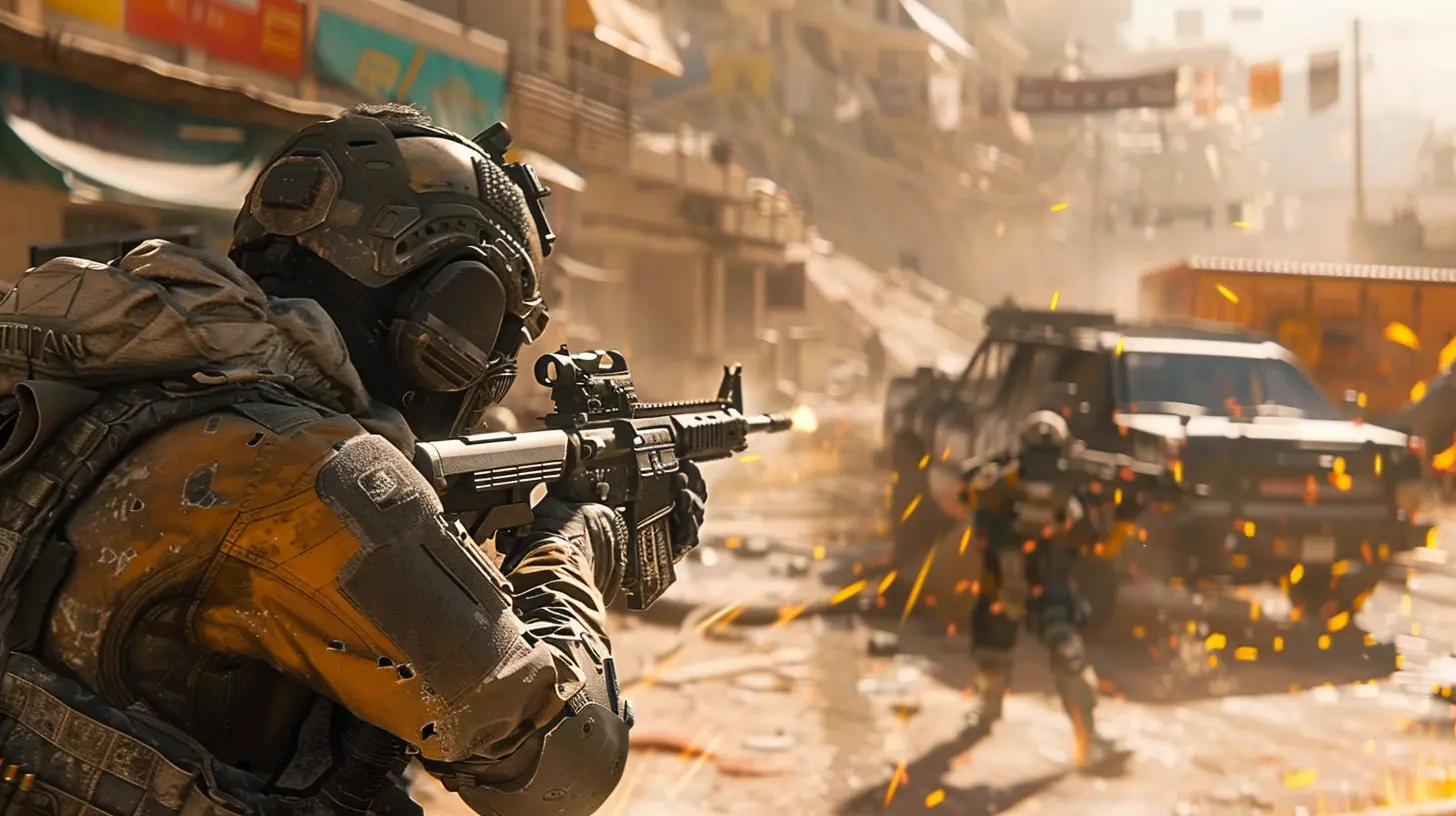
Know Your Role (And Play It Well)
In team-based shooters, roles matter—a lot. You can’t have everyone sniping from the back or rushing blindly into enemy territory. Every game has its own set of roles, but they generally fall into a few classic categories:1. Damage Dealers (DPS): The fraggers. They’re all about dishing out the hurt and eliminating high-priority targets.
2. Support: Healers, buffers, or utility players who keep the team alive and functioning.
3. Tank: The frontline bruisers who absorb damage and create space for the team.
Tips for Playing Your Role:
- DPS: Focus on precision and target priority. Don’t waste time shooting tanks when the enemy healer is wide open.- Support: Stay close to your team and prioritize keeping them alive over chasing kills.
- Tank: Be brave. Push forward, protect your squishier teammates, and disrupt the enemy team whenever possible.
Understanding your role is like knowing your place in a band. Nobody wants four drummers and no guitarists; balance is crucial.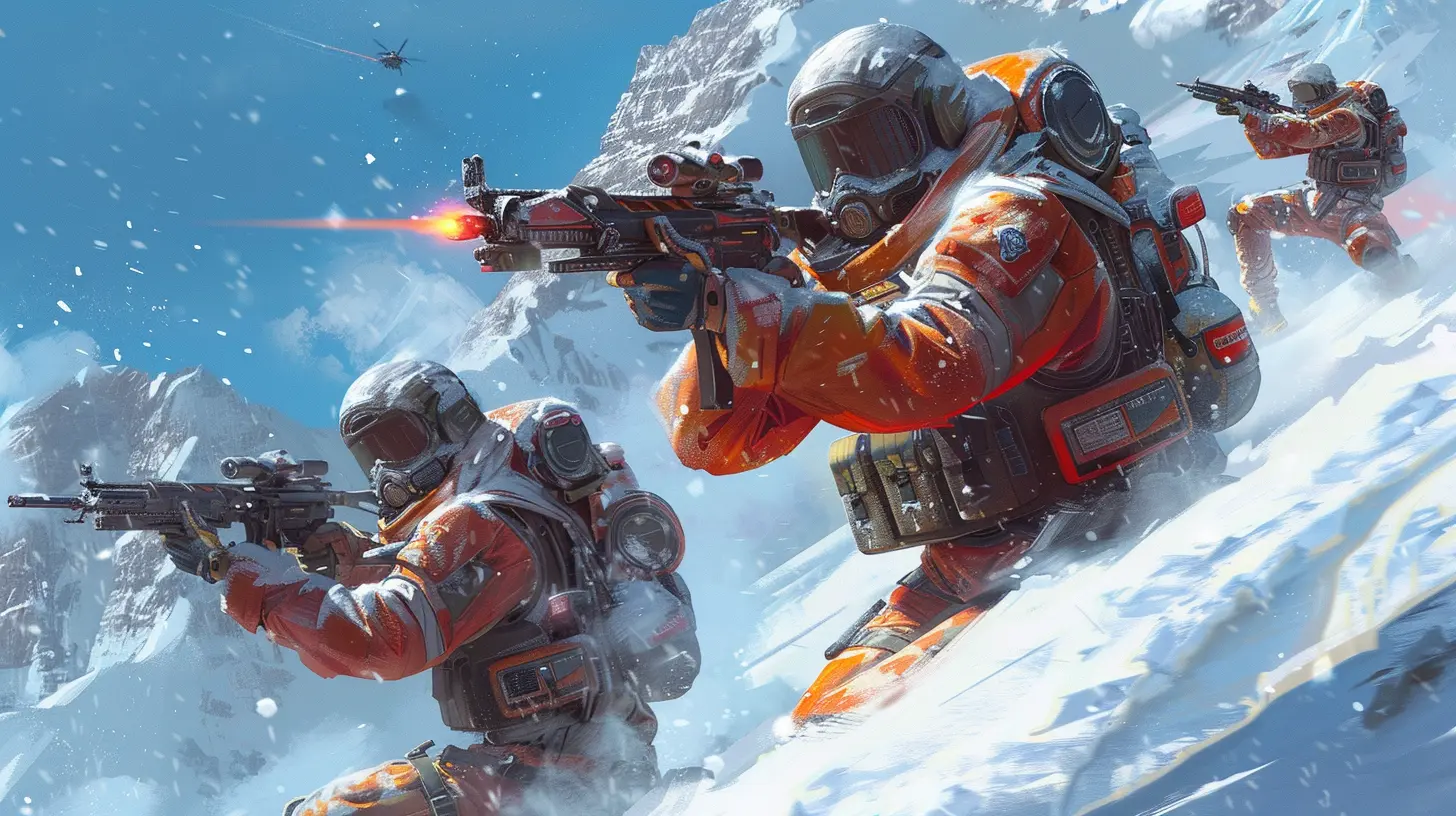
Map Knowledge: Your Secret Weapon
Here’s the thing: Good aim is important, but map knowledge? That’s the real game-changer. Knowing the layout of a map gives you the upper hand in positioning, which can turn the tide of any encounter.How to Improve Map Knowledge:
- Learn the Hotspots: These are the areas where most fights take place. Knowing these zones can help you predict enemy movements.- Memorize Flanking Routes: Catching enemies off-guard is a surefire way to rack up wins.
- Understand Cover: Always know where you can duck for safety during a firefight.
- Study Spawn Points: Knowing where enemies respawn can help you anticipate their next moves.
Think of maps as the game’s chessboard. The more you understand it, the better you can outplay your opponents.
Practice Makes Perfect
I know, I know—nobody wants to hear this. But the hard truth is, you won’t thrive in team-based shooters without putting in the hours. The pros didn’t just wake up one day with insane reflexes and God-tier strategies; they practiced.But here’s the good news: You don’t need to grind for 10 hours a day. Smart practice beats mindless grinding.
Ways to Practice Effectively:
- Focus on Weak Points: If your aim is bad, hit the practice range. If your decision-making is off, review your matches.- Play With Friends: Coordinating with friends in a less stressful environment can help you learn faster.
- Watch Pros Play: Sites like YouTube and Twitch are goldmines for tips and strategies. Just don’t fall into the rabbit hole of watching more than you play.
- Experiment: Don’t be afraid to try new heroes, weapons, or strategies. You’ll never grow if you only play what’s comfortable.
Practice isn’t just about logging hours; it’s about logging productive hours.
Mindset: The Unsung Hero
This one’s huge and often overlooked. Your mindset can make or break your gaming experience. If you’re tilted, frustrated, or focusing too much on your losses, you’re going to perform worse. Period.How to Keep a Healthy Mindset:
- Don’t Focus on Winning: Ironically, focusing too hard on winning can lead to frustration. Instead, focus on improving your skills.- Take Breaks: If you’re on a losing streak, step away. Regroup, grab a snack, or watch some funny cat videos. Resetting your mental state does wonders.
- Celebrate Small Wins: Did you land a clutch headshot? Did you successfully communicate with your team? These are victories, too!
Remember, even pro players lose matches. It’s all part of the process.
Adapting to Different Games
Every team-based shooter has its own quirks. The strategies that work in Overwatch might fall apart in CS:GO. Adapting to the unique mechanics of each game is crucial.A Quick Look at Popular Titles:
- Overwatch 2: Emphasizes hero roles and creating synergy between abilities.- Valorant: Focuses heavily on precise shooting and using utility effectively.
- Apex Legends: Rewards mobility and quick decision-making.
- CS:GO: Demands pixel-perfect aim and a deep understanding of economy management.
The best way to adapt? Play. Learn each game’s nuances by diving in and experimenting.
Final Thoughts
Thriving in team-based multiplayer shooters is a journey. It’s not just about getting better mechanically; it’s about learning to work with others, adapt to changing situations, and most importantly, enjoying the process.At the end of the day, it’s still a game. Remember why you started playing in the first place—probably to have fun, right? So go ahead, boot up your favorite game, and start putting these tips into action. Oh, and make sure to call out "GG" at the end of your matches—it’s not just good manners, it’s good karma.


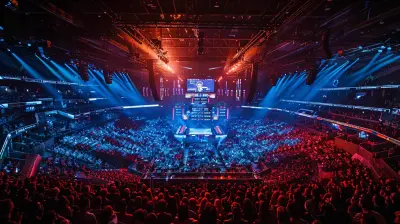


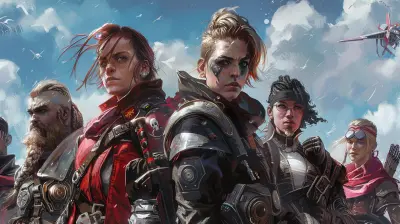


Parisa Butler
Embrace collaboration and communication! In team-based multiplayer shooters, success isn't just about individual skill—it's about synergy. Support your teammates, strategize together, and watch as your collective efforts lead to victory. Unite and conquer!
April 1, 2025 at 3:52 PM